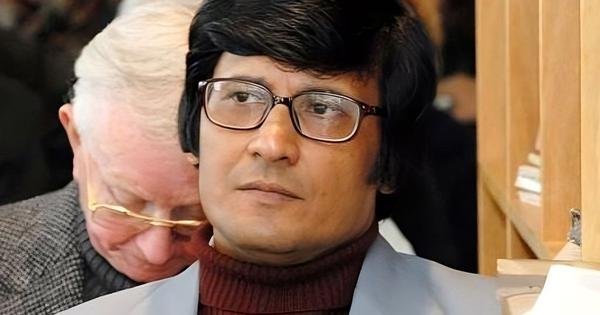Review: Broken Mirror: Conversations with Artists and Thinkers
Engaging and Insightful Interviews
Chinmoy Guha’s book, Broken Mirror: Conversations with Artists and Thinkers, is a captivating collection of interviews with various intellectuals and artists. Guha’s simple and uncomplicated approach makes the conversations highly readable, entertaining, and informative. The book covers a broad timespan (2000-2023) and a wide range of intellectual and artistic interests.
- Interviews conducted between 2000 and 2023
- Broad timespan and range of intellectual and artistic preoccupation
- Guha’s unwavering integrity holds the book together
Interviewing Intellectuals and Artists
Interviewing intellectuals and artists can be challenging, but Guha manages to maintain respect for his interviewees’ privacy while thawing their natural reticence. He skillfully treads the thin line between respect and curiosity.
- Respect for the interviewees’ privacy
- Need for thawing their natural reticence
- Treading the thin line between respect and curiosity
I Won’t Agree
One instance of Guha’s ability to ask tough questions is evident in his conversation with Gayatri Chakravorty Spivak. When he suggests that there is something pointedly artificial about feminism, Spivak responds, “I won’t trash feminism.”
- Guha’s willingness to act as an agent provocateur
- Spivak’s explanation of the positive aspects of feminist discourse
- Deconstructionist in Spivak stands up
Provincialising Marx
Guha’s questions prompt many interviewees to revisit the history of the Marxist movement through the lens of their childhood or early manhood in the 1940s and 1960s. This is especially evident in the interviews with Mahasweta Devi, Tapan Raychaudhuri, Shankha Ghosh, and Dipesh Chakrabarty.
- Intertwining of national and personal histories
- Untold story of Mahasweta Devi losing her job twice
- Importance of communist discourse in intellectual growth
The Softer Side
Although I enjoyed all the interviews, my favorite is Guha’s long conversation with Dipesh Chakrabarty. The conversation reveals intimate and sincere moments, offering insights into history that may not be available in Chakrabarty’s extensive writing. Chakrabarty can be both chatty and profound at the same time.
- Intimacy and sincerity in the conversation
- Softer facet of Spivak’s character revealed
- Challenges faced by Spivak in her youth
The Royal Hunt
Two personalities in the book, Mrinal Sen and Mamata Shankar, were involved in the production of the award-winning film, Mrigaya. The film holds a special place in the Odia mind as the original story was written by the leading Odia progressive writer Bhagabati Charan Panigrahi and published in 1936.
- Mamata Shankar’s debut film
- Anecdotal recollections of association with Mrinal Sen and Satyajit Ray
The Missing Line
The book contains much more than I can highlight in this brief review. However, I cannot help but mention Shankha Ghosh discussing endless revisions of poetry by Tagore and a priceless anecdote concerning the poet Sudhindranath Dutta.
- Inner selves of the interviewees revealed
- Refreshing light on the obscure corners of their minds and hearts
Broken Mirror: Conversations with Artists and Thinkers, Chinmoy Guha, Primus Books.



